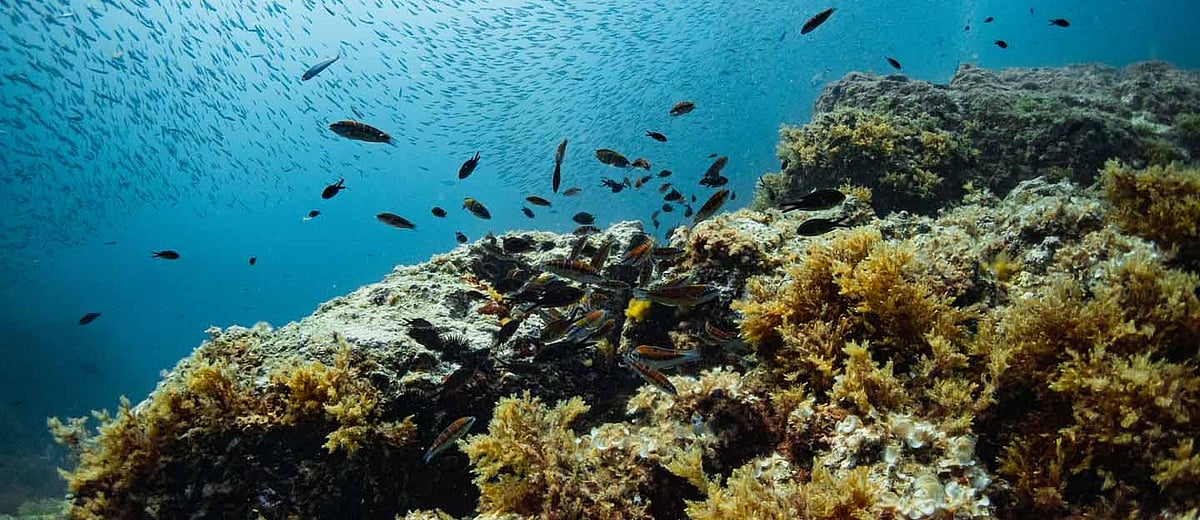Abu Dhabi warns: Illegal oyster harvesting can cost up to Dh100,000 and jail time
Illegal oyster harvesting faces hefty fines and jail in Abu Dhabi

As part of ongoing efforts to safeguard reserves and preserve marine and terrestrial resources, Abu Dhabi Police, in cooperation with the Environment Agency – Abu Dhabi (EAD), recently recorded a violation involving individuals collecting oysters without a permit from one of the emirate’s marine reserves.
The EAD is intensifying measures to prevent the illegal fishing, harvesting, and trade of oysters, aligning with its broader mission to conserve biodiversity, protect marine life, and ensure environmental sustainability.
In cooperation with Abu Dhabi Police, the agency confirmed that collecting oysters without a permit constitutes a clear breach of Federal Law No. 23 of 1999. Violators face imprisonment of no less than six months and/or fines ranging from Dh50,000 to Dh100,000, in addition to confiscation of the equipment used. The agency emphasised the importance of following environmental legislation to protect sensitive ecosystems for future generations.
Oyster habitat survey project
The Environment Agency has launched a project to survey, assess, and rehabilitate traditional oyster habitats, supporting Abu Dhabi’s Climate Change Strategy. The initiative aims to enhance marine environments, protect habitats, conserve biodiversity, and preserve cultural heritage.
The project—first of its kind in the Arabian Gulf—focuses on mitigating climate change impacts and improving seawater quality, as oysters naturally absorb and store carbon dioxide while forming their shells.
It will enrich the agency’s database through a comprehensive survey of traditional oyster diving sites, creating an interactive digital map. The initiative also involves school students through the “Sustainable Schools Initiative,” who contribute to producing reef balls, raising awareness of marine habitat protection.
Commitment to environmental legislation
The EAD reaffirmed the importance of adhering to environmental laws to safeguard ecosystems. These efforts align with UAE directives that have long recognized the significance of preserving wildlife and marine life. Over the years, federal and local legislation has prohibited practices threatening natural resources, positioning the UAE as a global leader in environmental sustainability.
Legally protected marine areas
Abu Dhabi hosts several marine protected areas, including:
Saadiyat Marine National Park: Adjacent to Saadiyat Island, home to rich marine life including endangered hawksbill turtles.
Al Yasat Marine Protected Area: Coral reefs and islands of environmental, historical, and cultural importance.
Mangrove National Park: Millions of mangrove trees supporting diverse ecosystems.
Marawah Marine Biosphere Reserve: Rich biodiversity, home to the world’s second-largest dugong population; site of the world’s oldest natural pearl discovery in 2019.
Bu Sayayif Protected Area: Important for resident and migratory birds, including flamingos; listed under the Ramsar Convention.
Ras Ghanada Protected Area: Coral reefs provide coastal protection and serve as an ecotourism attraction.
20 nature reserves to protect
The Zayed Protected Areas Network forms the backbone of the EAD’s conservation efforts, supporting key species breeding and conserving terrestrial and marine ecosystems.
The network includes 20 nature reserves, comprising 14 terrestrial reserves (17% of land area) and six marine reserves (14% of marine environment), reinforcing Abu Dhabi’s leadership in biodiversity conservation at both federal and regional levels.
Network Links
GN StoreDownload our app
© Al Nisr Publishing LLC 2026. All rights reserved.